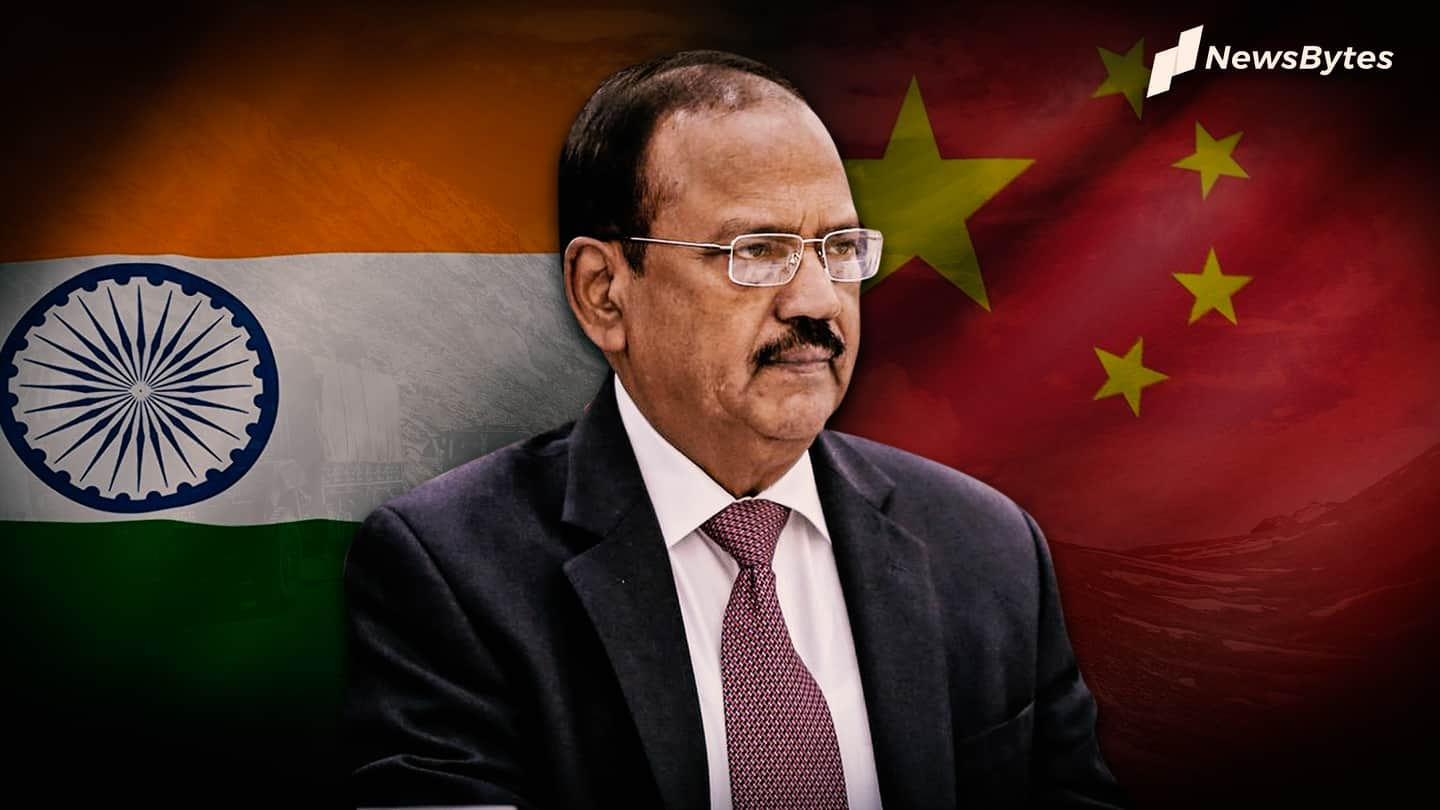
Did NSA Doval play a role in Galwan Valley's de-escalation?
What's the story
Before the People's Liberation Army (PLA) pulled its troops back in the tense Galwan Valley today, National Security Advisor (NSA) Ajit Doval had a long telephonic conversation with China's Foreign Minister Wang Yi on Sunday, multiple reports said.
During this important phone call, both sides stressed upon "full and enduring restoration of peace and tranquillity" and also on not allowing "differences become disputes."
Context
Backstory: Dialogues were initiated at various levels after violent clash
Already brewing with tensions since May, the Galwan Valley witnessed bloodbath on June 15 after PLA attacked Indian soldiers, who were waiting for them to retreat to their original posts.
In the violent clash, 20 Indian soldiers, including a Commanding Officer, were martyred and an undisclosed number of Chinese soldiers died.
Soon, dialogues, both at military and diplomatic levels, were launched.
De-escalation
Earlier, high-ranking military officers talked; Jaishankar also spoke with Wang
As part of the "de-escalation" process, corps commander level talks were held thrice; the third one happened just last week.
But when dialogues at military levels didn't make headway, New Delhi pondered about activating Special Representative (SR) mechanism, paving the path for Doval and Wang's involvement.
Before Doval, External Affairs Minister S Jaishankar also spoke with Wang, just two days after the violent face-off.
Statement
Doval and Wang exchanged views frankly, said MEA
Giving details of Doval's phone call with Wang, the Ministry of External Affairs (MEA) said that the two had a "frank and in-depth exchange of views."
"They agreed that it was necessary to ensure at the earliest complete disengagement of the troops along the LAC and de-escalation from India-China border areas for full restoration of peace and tranquillity," the statement read.
Details
One call not enough, military and diplomatic talks will continue
Further, MEA said both sides agreed that talks at military and diplomatic levels must continue.
They also agreed to a step-by-step de-escalation process and maintained that none of the sides must make any attempts to change the status quo.
The results of the talk were visible soon as Chinese troops went back by at least one kilometer on Monday.
What happened
Reportedly, Indian troops also pulled back, but without surrendering territory
Chinese troops have not only retreated at the Galwan Valley but also at Gogra and Hot Springs area, an NDTV report said.
As part of the agreement, Indian troops also pulled back, but without giving up their claim on the area. A buffer zone has been constructed between Indian and Chinese troops.
Sources told ANI that India's responsible approach was recognized across the globe.
Visit
Last week, PM Modi visited Ladakh, gave a rousing speech
It's pertinent to highlight that Prime Minister Narendra Modi paid a surprise visit to Ladakh last week and delivered an impassioned speech at Nimu post.
Referring to China as an expansionist, he said the world has seen fire and fury of soldiers.
Miffed by his visit, China said no one should escalate the situation while adding that calling it as an expansionist was wrong.